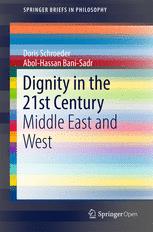

Most ebook files are in PDF format, so you can easily read them using various software such as Foxit Reader or directly on the Google Chrome browser.
Some ebook files are released by publishers in other formats such as .awz, .mobi, .epub, .fb2, etc. You may need to install specific software to read these formats on mobile/PC, such as Calibre.
Please read the tutorial at this link: https://ebookbell.com/faq
We offer FREE conversion to the popular formats you request; however, this may take some time. Therefore, right after payment, please email us, and we will try to provide the service as quickly as possible.
For some exceptional file formats or broken links (if any), please refrain from opening any disputes. Instead, email us first, and we will try to assist within a maximum of 6 hours.
EbookBell Team

5.0
78 reviewsThis book is open access under a CC BY license.
This book offers a unique and insightful analysis of Western and Middle Eastern concepts of dignity and illustrates them with examples of everyday life.
Dignity in the 21st Century - Middle East and West is unique and insightful for a range of reasons. First, the book is co-authored by scholars from two different cultures (Middle East and West). As a result, the interpretations of dignity covered are broader than those in most Western publications. Second, the ambition of the book is to use examples from everyday life and fiction to debate a range of dignity interpretations supplemented by philosophical and theological theories. Thus, the book is designed to be accessible to a general readership, which is further facilitated because it is published with full open access. Third, the book does not defend one superior theory of dignity, but instead presents six Western approaches and one based on the Koran and then asks whether a common essence can be detected.
The answer to the question whether a common essence can be detected between the Koranic interpretation of dignity and the main Western theories (virtue, Kant) is YES. The essence can be seen in dignity as a sense of self-worth, which persons have a duty to develop and respect in themselves and a duty to protect in others. The book ends with two recommendations. First, given the 7 concepts of dignity introduced in the book, meaningful dialogue can only be achieved if conversation partners clarify which variation they are using. Second, future collaborations between philosophers and psychologists might be helpful in moving theoretical knowledge on dignity as a sense of self-worth into practical action. The “scourges” of a sense of self-worth and dignity are identified by psychologists as violence, humiliation, disregard and embarrassment. To know more about how these can be avoided from psychologists, is helpful when protecting a sense of self-worth in others.